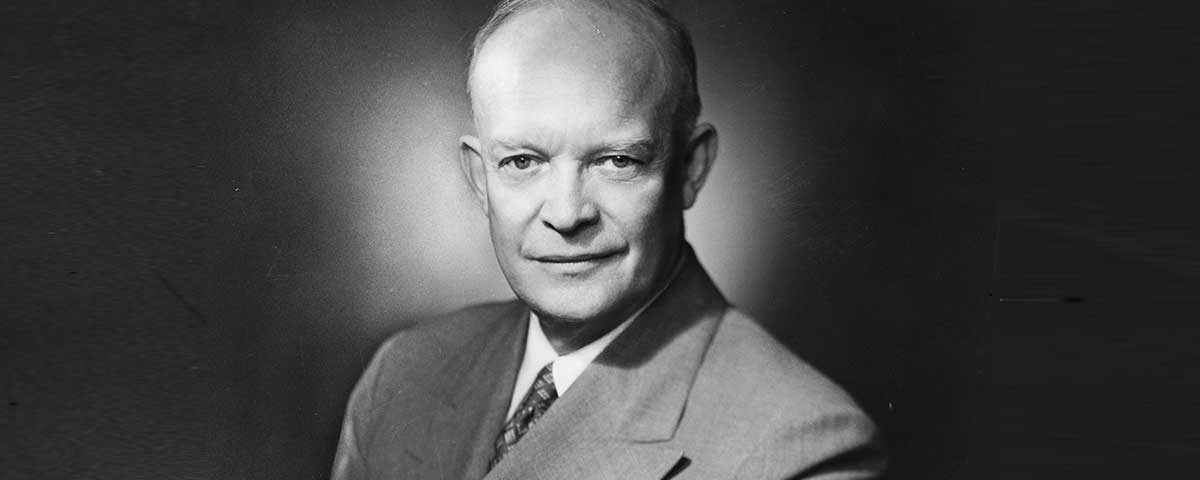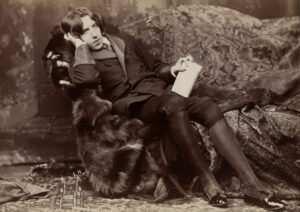Most Americans liked Ike. President Dwight Eisenhower’s average approval rating for his eight years in office (1953-61) was 65 percent—popularity modern-day presidents can only dream about. But Eisenhower was generally regarded as a genial, hands-off president, a reassuring father figure who left the real work of governing to others, particularly his hawkish secretary of state, John Foster Dulles. By the end of his second term, the liberal establishment press, enamored with the vigorous rising star John F. Kennedy, wrote off Ike as a bit dim and out of it, a kindly old fellow who used poor syntax and played too much golf.
Scholars have known for at least three decades, since the pioneering work of Princeton political scientist Fred Greenstein in the early 1980s, that Ike was a far more effective president than he let on. Greenstein examined Eisenhower’s private and public papers and, in The Hidden-Hand Presidency, discerned that Ike was happy to let others get the credit—or the blame—so that he was free to maneuver behind the scenes to achieve what he wanted.
Still, the image persists: Ike, the affable, golf-playing former general who presided, rather than governed, through the prosperous, peaceful—and often dull—1950s. In the popular imagination, Eisenhower lacks the dynamism of JFK, the political wiles of Lyndon Johnson or the vision of Ronald Reagan. That may all be true, but I would argue that Eisenhower had something more useful—and relevant to today’s dysfunctional politics: “the confidence to be humble.”
That was the phrase used by President Richard Nixon, in his eulogy to President Eisenhower in March 1969. Nixon, who had served two terms as Eisenhower’s vice president, was a keen observer of the 34th president. In his own autobiography, Six Crises, Nixon wrote that Eisenhower was a “more complex and devious man than most people realize.” (Nixon added, “and I mean that in the best sense of the word.”) Nixon saw that Ike sometimes played dumb—pretending to know much less than he actually did. Once, before a press conference during a crisis with Red China, Ike’s aides warned him to be careful answering hot-button questions about whether the United States would use nuclear weapons. “Oh, don’t worry,” said Ike, “I’ll just confuse them.” And he did, wandering off on a less-than-coherent meditation on war and its effects.
It’s hard to imagine a politician who doesn’t need to be the smartest guy in the room, but that was Eisenhower. It’s not that Ike didn’t have a big ego. No man could have been Supreme Allied Commander in World War II without a robust sense of his own ability—even destiny. But he was successful in engineering the conquest of Europe not so much because he was a great military strategist—he was not—but because he was good at managing the large egos of others. Ike learned how to handle the likes of Winston Churchill and Charles de Gaulle. No wonder he was unfazed by congressmen and Washington pundits. As a major and lieutenant colonel during the 1930s, Eisenhower had served as General Douglas MacArthur’s chief of staff. Ike liked to say he learned what not to do by observing the vainglorious MacArthur, who always drew attention to himself.
Eisenhower’s experience as a wartime commander also taught him how to handle great personal responsibility. It was Eisenhower who had to give the order to “go” on D-Day, when the weather on the landing beaches was iffy and the consequences of failure catastrophic. The day before the invasion, Ike visited the American paratroopers who were going to drop behind enemy lines that night. Their casualty rate was expected to exceed 70 percent. In his jacket pocket, Ike carried a letter he’d written stating that if the landings failed, the responsibility was his alone.
Ike’s steely, selfless resolve showed itself again when he took command of the American presidency just as the Cold War was entering the realm of the apocalypse. A few days before Ike was elected in November 1952, the United States set off its first hydrogen bomb—200 times more powerful than the bombs used at Hiroshima and Nagasaki. The Russians followed with their own crude H-bomb nine months later. The arms race to Armageddon was on.
We forget how frightening those times actually were. When the Russians launched the first satellite, Sputnik, in October 1957, many Americans feared that the Soviets would soon be raining nuclear weapons down from space. There was panicked talk of the “missile gap” and suburban families began digging fallout shelters.
Eisenhower remained firm but calm. He played down the Soviet missile threat (which he knew was probably exaggerated—America’s new secret spy plane, the U-2, was not finding Soviet intercontinental missile sites). He let Secretary of State Foster Dulles play the heavy at brinksmanship, warning of “massive retaliation” against communist incursions around the world. But once he had gotten America out of the Korean War (partly by bluffing with nuclear weapons), Eisenhower never committed American combat troops abroad. Significantly, he refused to send American ground troops to Vietnam when the French effort there collapsed in 1954. As historian Campbell Craig wrote in his perceptive book Destroying the Village, Ike understood from his own experience and from reading Clausewitz’s On War that war is not something that politicians can limit or “manage.” Small wars have a way of becoming big wars, and Ike was determined to keep America out of any war.
This was no mean feat during the tense early years of the Cold War. The Soviets were determined to test the West. The flashpoint was Berlin, where, in November 1958, Kremlin leader Nikita Khrushchev delivered an ultimatum that the West had to be out of the still-free city in six months—or else. The blustery Khrushchev warned that the tanks would roll, and suggested, even more ominously, that the missiles would fly.
Most policymakers, including Ike’s closest advisers, wanted to build NATO troop strength. But Ike disagreed and reduced U.S. troop strength in NATO. He wanted to send the message to the Russians that there would be no limited, conventional battle. It was all or nothing. “The Russians will have started this war. We will finish it. That is all the strategy I have,” Ike told his advisers.
Ike knew he had to meet Khrushchev face to face, so he invited him to the United States, and wound up hosting him at Camp David. Khrushchev blustered and threatened, but Ike remained cool. Indeed, he took Khrushchev to meet his grandchildren. Ike knew that Khrushchev was not suicidal, that he had grandchildren, too.
Khrushchev withdrew the ultimatum and the crisis passed. Of course, it was not the last crisis. Determined not to fight either a nuclear war or a conventional war, Ike relied too much on covert action. The CIA was able to give Eisenhower some early “successes”—overturning left-leaning governments in Iran and Guatemala—but the long-term effects were not so sanguine, and in any case the CIA began making mistakes. One of them was not warning Ike that the Soviets were developing antiaircraft missiles that could fly high enough to hit the U-2 spy plane. When, in May 1960, U-2 pilot Francis Gary Powers was shot down and captured, the incident aborted a summit meeting Ike was counting on to produce true détente with Moscow and the beginning of arms control. The Cold War took a dark turn.
By then, Ike was worn out. He had suffered a heart attack in 1955, a stomach operation in 1956 and a stroke in 1957. He was playing a lot of golf (800 rounds as president) and taking sleeping pills and maybe an extra drink at night. But he had accomplished a great deal. A fiscal conservative, he had balanced the budget—largely by cutting military spending (especially for his old comrades in the U.S. Army, because he had no intention of using ground troops to fight). A believer in helping the economy through long-term investment, he had launched the interstate highway system. As historian David Nichols has shown, Eisenhower had worked quietly, behind the scenes, to advance civil rights and to bring down the right-wing menace Senator Joe McCarthy. If he didn’t get credit at the time, it’s because Ike knew he could be more effective by working through indirect action and pretending to be much less involved than he actually was.
We live today in an age of talking heads who shout, of politicians who appear to care more about posturing and positioning than legislating. Social media seems to require the young to show off. Restraint and humility are values that seem quaint. But Eisenhower showed that it is possible to be a very strong personality (an aide once described being on the receiving end of his temper as “peering into a blast furnace”) and to take great risks—without constantly boasting and getting into foolish fights over pride and respect. His presidency is looking better and better.
Evan Thomas is the author of Ike’s Bluff: President Eisenhower’s Secret Battle to Save the World. His new biography, Being Nixon: The Fears and Hopes of an American President, will be published in September.





